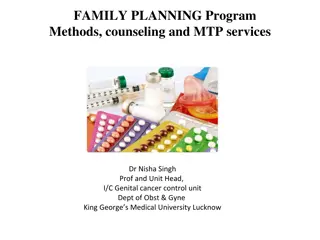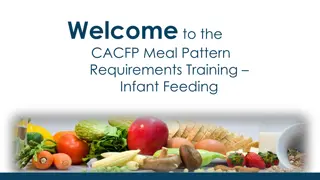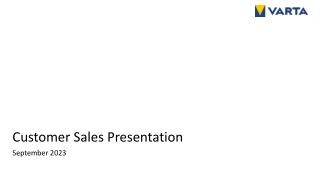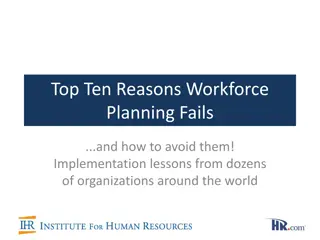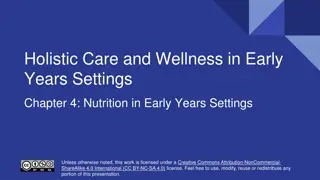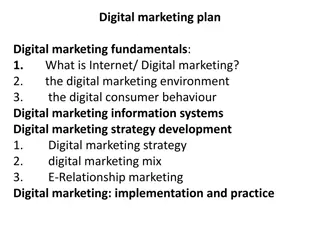Smart Meal Planning and Shopping Tips for Healthy Eating
Plan your meals before shopping to avoid unnecessary purchases, focus on nutritious options, and utilize cost-saving strategies. Differentiate between ready-made and homemade meals for optimal health and budget benefits. Incorporate key tips for preparing and cooking food efficiently to maintain a nutritious diet at home.
Download Presentation
Please find below an Image/Link to download the presentation.
The content on the website is provided AS IS for your information and personal use only. It may not be sold, licensed, or shared on other websites without obtaining consent from the author. Download presentation by click this link. If you encounter any issues during the download, it is possible that the publisher has removed the file from their server.
Presentation Transcript
Top tips for meal planning and shopping Plan your meals before you shop, to ensure you don t forget any ingredients. This also helps you to focus and not become tempted to buy food you don t need. Use your calculator to work out which size pack of food is the best value. However, make sure that if you do buy large packets of food, that you will be able to finish the food before the use by date- and without overeating! Beware of healthy price tags- the food industry tries to entice us to buy their products by suggesting that they are superior and have extra health benefits. Eating a variety and balance of everyday foods, can provide us with all the nutrients we need. Look out for supermarkets own or value ranges. Often these products taste just as good as big brands, but for a fraction of the price. Find out what time the fresh produce is reduced to clear in your local shops. It is possible to find some bargains, which could be eaten straight away, or frozen for another day or even used to make a dish, which you could then save for another time.
Ready-made vs homemade? Total: 2.02
Which is cheaper? The homemade sauce is cheaper. There will be ingredients left over to add to meals another day too (garlic cloves and mixed herbs). You know exactly what is in a homemade sauce and can tailor the recipe to suit your family. The homemade sauce doesn t contain any added sugar or salt. However, it s always worth checking prices and ingredients to check you have the best option for your family. Sometimes we just need a little extra help when we re busy and feeding our hungry families is the priority. It is absolutely fine to eat ready-made food too!
Top tips for preparing and cooking food Try to keep a range of store cupboard essentials at home e.g. tinned tomatoes, beans, rice, pasta and frozen vegetables. This way you always have the ingredients to make a quick, nutritious meal. Adding herbs and spices to meals can add flavour without adding salt or sugar. Dried herbs can last for a long time if stored correctly, so once bought, can be included in many meals. Make extra when cooking soups, casseroles, curries and sauces. The extras can be stored in the fridge or frozen, to create a homemade ready- meal! Invest in a slow cooker which uses very little electricity to function. Cooking slowly helps to develop flavour and tenderisation, so can transform cheap ingredients into delicious dishes. A hand blender is also a good investment and can be used to create soups and sauces. These are particularly useful when you have leftovers or fresh produce that needs using up.














